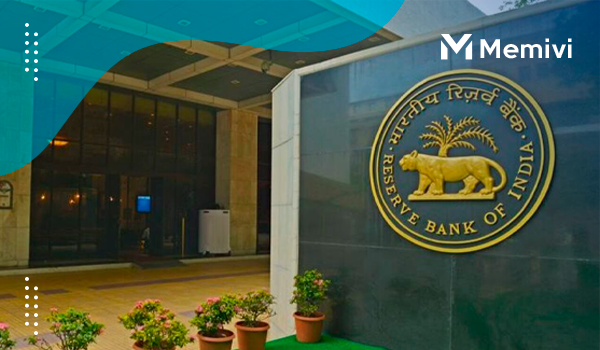
Fixed deposits are a popular investment option in India, but they aren’t the only option available to investors. In fact, there are several alternatives that can help you maximize your returns and unlock your financial potential. With interest rates at an all-time low, it’s important to explore other investment opportunities that can help you grow your wealth.
In this post, we’ll be discussing eight of the best alternatives to fixed deposits in India, including mutual funds, public provident funds, and more. We’ll explore the benefits and drawbacks of each option and help you determine which one is right for you. Whether you’re a seasoned investor or just starting out, this post will provide you with valuable insights into the world of investing and help you make informed decisions about your financial future.
Why consider alternatives to fixed deposits?
Fixed deposits have long been a popular investment option in India. They offer a sense of security and stability, making them a go-to choice for many individuals. However, it’s essential to consider alternatives to fixed deposits for several reasons.
Firstly, fixed deposits often provide lower returns compared to other investment options. While they guarantee a fixed interest rate, these rates may not always keep up with inflation. This means that over time, the purchasing power of your investment may decrease.
Secondly, fixed deposits typically have a fixed tenure, which means your money is locked in for a specific period. This lack of liquidity can be a disadvantage if you need access to your funds in case of emergencies or unforeseen expenses. Alternatives to fixed deposits may offer more flexibility in terms of withdrawal options.
Another factor to consider is the impact of taxes on fixed deposits. Interest earned from fixed deposits is subject to taxation, and depending on your tax bracket, this can significantly reduce your overall returns. Exploring alternative investment options can help you identify strategies to minimize tax liabilities and maximize your financial gains.
Moreover, the diversification of your investment portfolio is crucial for mitigating risks. Relying solely on fixed deposits exposes your savings to interest rate fluctuations and inflation risks. By exploring alternative avenues, such as mutual funds, stocks, bonds, or real estate, you can diversify your investments and potentially earn higher returns.
8 Best Alternatives to Fixed Deposits in India

- Mutual funds: Diversify and earn better returns
Mutual funds offer a great alternative to fixed deposits when it comes to unlocking your financial potential in India. They provide an opportunity to diversify your investment portfolio and potentially earn better returns. One of the key advantages of mutual funds is the ability to invest in a variety of assets such as stocks, bonds, and securities, which helps spread the risk and reduce the impact of market volatility. This diversification can be particularly beneficial for individuals who are risk-averse and prefer a more balanced approach to investing.
- Public Provident Fund (PPF): A secure and tax-efficient option
When it comes to investing your hard-earned money, security and tax-efficiency are two key factors that cannot be overlooked. One such option that offers both is the Public Provident Fund (PPF). The PPF is a popular investment tool in India, backed by the government. It provides individuals with an opportunity to invest and grow their savings while enjoying tax benefits. One of the main advantages of the PPF is its fixed interest rate, which is currently set at 7.1% per annum (subject to change as per government regulations).
- National Pension System (NPS): Long-term investment for retirement
When it comes to planning for retirement, the National Pension System (NPS) is a long-term investment option that should not be overlooked. Designed to provide financial security during retirement, the NPS offers individuals the opportunity to contribute towards their pension fund and build a substantial corpus over time.
One of the key advantages of the NPS is its flexibility. Individuals can choose their investment preferences from a range of asset classes including government securities, corporate bonds, and equities. This allows investors to tailor their investment strategy based on their risk appetite and financial goals.
- Equity-linked savings scheme (ELSS): Tax savings and potential for growth
Equity-linked savings scheme (ELSS) is a popular investment option in India that offers both tax savings and the potential for growth. ELSS is a type of mutual fund that primarily invests in equities or stocks of companies. This investment avenue allows individuals to save taxes under Section 80C of the Income Tax Act, making it an attractive option for those looking to maximize their savings.
- Corporate bonds: Higher interest rates with some risk
Corporate bonds can be a lucrative alternative to fixed deposits in India, offering higher interest rates while still maintaining a level of risk. These bonds are issued by corporations to raise capital and typically have a fixed maturity period, making them a viable option for those looking to diversify their investment portfolio. One of the key advantages of investing in corporate bonds is the potential for higher returns.
Unlike fixed deposits, where interest rates are capped, corporate bonds often offer more attractive interest rates that can significantly boost your earnings. This can be especially beneficial in a low-interest-rate environment, where fixed deposits may not provide substantial returns.
- Real estate investment trusts (REITs): Earning from rental income and property value appreciation
Real estate investment trusts (REITs) have emerged as a popular alternative to fixed deposits in India, offering investors the opportunity to earn from rental income and property value appreciation. REITs are investment vehicles that pool funds from multiple investors and invest in income-generating real estate properties, such as commercial buildings, hotels, or residential complexes.
- Gold investments: Hedge against inflation and economic uncertainties
When it comes to exploring alternative investment options in India, gold has always been a popular choice. Gold investments have long been considered a reliable hedge against inflation and economic uncertainties. As the value of paper currency fluctuates, gold tends to hold its worth and even appreciate over time.
One of the key advantages of investing in gold is its ability to act as a safe haven during times of economic turmoil. In times of political instability or financial crises, investors often turn to gold as a store of value. This is because gold has a limited supply and is universally accepted as a form of currency, making it a tangible asset that can be easily traded or sold.
- Peer-to-peer lending platforms
Additionally, peer-to-peer lending platforms and corporate fixed deposits can offer higher interest rates, but they come with their own set of risks. It is important to carefully evaluate the credibility and track record of these platforms and companies before committing your funds. Ultimately, the key is to strike a balance between risk and reward, and to choose investment alternatives that align with your financial goals and risk tolerance.
Final Thoughts
We hope you found our blog post on the best alternatives to fixed deposits in India helpful in unlocking your financial potential. Fixed deposits have long been a popular investment option, but there are other avenues worth exploring that offer higher returns and greater flexibility. By diversifying your investment portfolio with the alternatives we’ve discussed, you can maximize your earnings and achieve your financial goals. Remember to do thorough research and consult with a financial advisor before making any investment decisions. Here’s to a prosperous financial future!



 Why Investors Should Approach a Strong Economy with Caution? <p class='sec-title' style='line-height: normal; font-weight: normal;font-size: 16px !important; text-align: left;margin-top: 8px;margin-bottom: 0px !important;'> In the world of investing, a strong economy is often viewed as a signal to buy and invest heavily. However, this approach can sometimes be a mistake. </p>
Why Investors Should Approach a Strong Economy with Caution? <p class='sec-title' style='line-height: normal; font-weight: normal;font-size: 16px !important; text-align: left;margin-top: 8px;margin-bottom: 0px !important;'> In the world of investing, a strong economy is often viewed as a signal to buy and invest heavily. However, this approach can sometimes be a mistake. </p>  RBI Continues With A Pause On Rate Hikes Amid Focus On Curbing Inflation <p class='sec-title' style='line-height: normal; font-weight: normal;font-size: 16px !important; text-align: left;margin-top: 8px;margin-bottom: 0px !important;'> Staying the Course: RBI Holds Rates Steady in Efforts to Tackle Inflation. Get the Inside Scoop on India's Monetary Policy. </p>
RBI Continues With A Pause On Rate Hikes Amid Focus On Curbing Inflation <p class='sec-title' style='line-height: normal; font-weight: normal;font-size: 16px !important; text-align: left;margin-top: 8px;margin-bottom: 0px !important;'> Staying the Course: RBI Holds Rates Steady in Efforts to Tackle Inflation. Get the Inside Scoop on India's Monetary Policy. </p>  The Future is Now: A Guide on How to Invest in AI <p class='sec-title' style='line-height: normal; font-weight: normal;font-size: 16px !important; text-align: left;margin-top: 8px;margin-bottom: 0px !important;'> Your Trusted Source for AI Investment Guidance: Let's Navigate the Future Together. Explore AI Opportunities Today </p>
The Future is Now: A Guide on How to Invest in AI <p class='sec-title' style='line-height: normal; font-weight: normal;font-size: 16px !important; text-align: left;margin-top: 8px;margin-bottom: 0px !important;'> Your Trusted Source for AI Investment Guidance: Let's Navigate the Future Together. Explore AI Opportunities Today </p>